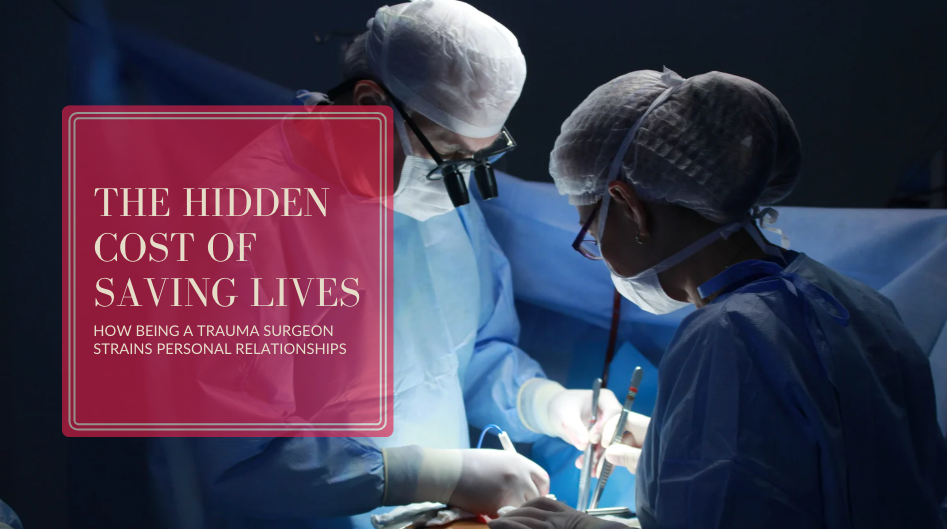The Hidden Cost of Saving Lives: How Being a Trauma Surgeon Strains Personal Relationships
For years, I thought my exhaustion was just my problem. As a trauma surgeon, I told myself that the long hours, the stress, and the emotional weight of my work were burdens I had to carry alone. But then, I started to notice something: my short temper, emotional distance, and stress responses weren’t just affecting me—they were hurting the people I loved.
The Ripple Effect of Unresolved Stress in Trauma Surgery
When you work in high-intensity medical environments, you don’t just bring home exhaustion; you bring home the weight of every decision, every loss, and every trauma. I convinced myself that shutting down emotionally was a survival tactic, but in reality, it was pushing away the very people who mattered most.
Short Temper & Reactivity: Stress from life-or-death decisions, emergencies, and overwhelming responsibilities would spill over into my personal life, making me irritable and quick to snap at my partner and family.
Emotional Distance: I thought keeping my emotions bottled up made me strong, but it made me unreachable to those who wanted to support me.
Neglecting My Relationships: The more I prioritized my patients and career, the more I ignored the people who loved and supported me outside of work.
Healing for Yourself—and for Them
Your trauma doesn’t just affect you—it affects your loved ones too. The people in your life see your pain, even when you try to hide it. Healing isn’t just about you; it’s about creating a life where those relationships can thrive again.
Rebuilding Relationships as a Trauma Surgeon
Recognize the Impact: Understand that your stress responses don’t exist in isolation—they affect those around you.
Communicate Openly: Let your loved ones in. Share your struggles and allow them to support you.
Prioritize Connection: Make time for meaningful conversations and activities outside of work, even when time feels scarce.
Seek Balance: Boundaries aren’t just for work—they’re essential for your personal life too. Saying no is just as important as showing up.
You’re Not in This Alone
Healing isn’t just about making yourself better; it’s about restoring the relationships that sustain you. As a trauma surgeon, your work is critical—but so is your well-being. The people who love you matter. They deserve the best version of you. And so do you.
Take the time to heal—for yourself, and for them.


